
Susan Ancel
Director of Water Distribution and Transmission
EPCOR Water Services, Inc.
Susan Ancel is the director of water distribution and transmission for EPCOR Water Services, Inc. (EWSI) in Edmonton. Her group is responsible for the planning, engineering, construction, operation and maintenance of the water distribution and metering systems owned and operated by EWSI in Edmonton, serving a population base of one million residents. Her group is also responsible for the development of the GIS systems within the utility and provides analytical support in consumption and revenue forecasting for the overall utility.
“Water resiliency for EPCOR means that we are able to meet the expectations and needs of our customers. It’s about tracking response and repair times to water main breaks, ensuring water quality standards are exceeded, water pressures are maintained and that work is completed within the timelines promised to our customers. EPCOR is unique in that performance is monitored daily and embedded across our entire operations to ensure all employees understand how we meet our customers’ needs.”
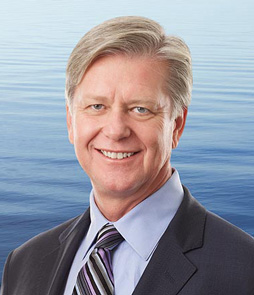
Rob Andrews
President and Chief Executive Officer
Ontario Clean Water Agency
Rob Andrews was appointed president and CEO of the Ontario Clean Water Agency on January 6, 2014. Since joining OCWA, Mr. Andrews and the agency’s senior management team have been working to expand the scope of OCWA’s business in the province of Ontario and solidify the agency’s reputation as Canada’s premier provider of total water and wastewater solutions. Prior to joining OCWA, Mr. Andrews was the chief executive of global water at AECOM, the world’s largest water engineering business with annual revenues exceeding $1B USD. Rob’s other previous industry experience includes Earth Tech’s executive vice-president, Global Water Projects and Products Division.
“Once-in-a-generation storms are occurring with increasing frequency, and the cost of dealing with the after effects — like basement flooding, combined sewer overflows and plant bypasses, can be significant. By proactively working with our municipal clients to ensure that their water and wastewater infrastructure has the resiliency to withstand the impacts of severe weather, we are helping them to avoid these costs.”
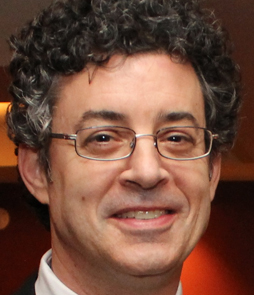
James Arnott
Wastewater Program, Environmental Stewardship Branch
Industrial Sectors Directorate, Environment Canada
James Arnott is a regulator with Environment Canada’s Environmental Stewardship Branch and is based in the National Capital Region. He manages the regulatory program at Environment Canada, which is responsible for the administration of the federal Wastewater Systems Effluent Regulations. James also represents Environment Canada on federal-provincial-territorial committees related to wastewater management, including those under the auspices of the Canadian Council of the Ministers of the Environment.

Jean-François Barsoum
Senior Managing Consultant
Smarter Cities, Water and Transportation at IBM
After joining IBM’s strategy consulting practice in 1996, Jean-François Barsoum began developing technology business plans and strategies.
In 2008, he was among the few Canadians selected by Al Gore’s Climate Project to receive training from the Nobel peace laureate. In 2011, he joined the board of directors of Mr. Gore’s Climate Reality Project – Canada.
“For the past few decades, managing water has been evolving slowly, but surely. But climate change and rapid urbanisation are leading us to realise that change must come much more rapidly than it has in the past. Harnessing big data coming from masses of sensors and the Internet of Things is one of the avenues that holds much promise.”

Sheila Boudreau
Urban Design, City Planning
City of Toronto
Sheila Boudreau, OALA (with seal), CSLA, OPPI (Prov), MA, BLA, BA, is a landscape architect and urban designer in City Planning at the City of Toronto. Her work is city-wide and includes developing guidelines and standards, designing and constructing capital works projects (including innovative pilot projects), coordinating inter-divisional/multidisciplinary working groups, community outreach, and the initiation and development of the street tree triple-bottom-line benefit-cost analysis project, as well as the adopt-a-street-tree program.
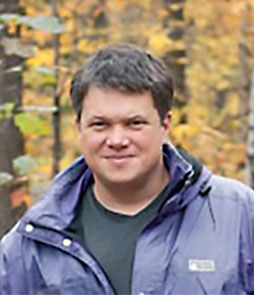
George Claydon
Principal Advisor, Policy and Communications
Infrastructure Canada
George Claydon is a principal advisor in the policy and communications branch of Infrastructure Canada. He joined the department in November 2004.
George’s policy work over the past decade has focused on the design and implementation of new infrastructure programs, including the Gas Tax Fund and the New Building Canada Plan. Most recently, George has been worked on the design of the new 10-year infrastructure plan.

Bernadette Conant
Chief Executive Officer
Canadian Water Network
Bernadette Conant is the chief executive officer of Canadian Water Network (CWN), where she has been working since 2003. Established in 2001 by Canada’s Networks of Centres of Excellence, CWN plays a vital role in ensuring that Canada benefits from its investments in research to manage its water resources more effectively and becomes a world leader in water management.
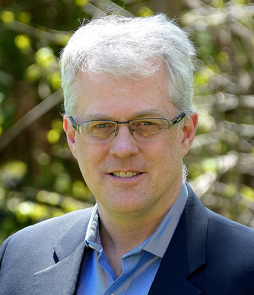
Brian Corbishly
Partner, Digital Operations Practice Lead
IBM Canada
Brian Corbishley leads a digital transformation practice for Canada focused on emerging technologies in the Internet of Things, digitizing operations, predictive asset optimization, and smarter infrastructure. Disruptive business models are evolving with operations becoming increasingly critical to enterprise performance, connected, ecosystem-centric, real time and insightful with enterprise decisions and action being taken in context.
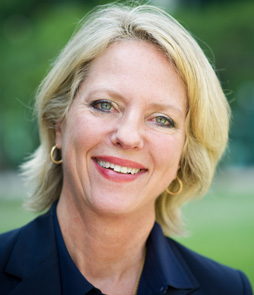
Debra G Coy
Partner
XPV Water Partners
Debra Coy is a partner with XPV Water Partners, the largest water-focused growth equity fund in North America. She has been an advisor to XPV since 2010 and joined the firm full-time in early 2015. From 2010 to 2015, she was also a principal with Svanda & Coy Consulting, providing strategic advisory services for investors, companies, and municipal utilities from a capital markets perspective.
“One of the biggest challenges that water systems face in becoming more resilient is finding the money for infrastructure upgrades. Innovation around more efficient ways of monitoring, forecasting, and managing the performance of infrastructure systems can help bring down the cost of much-needed investments, making resiliency more affordable.”
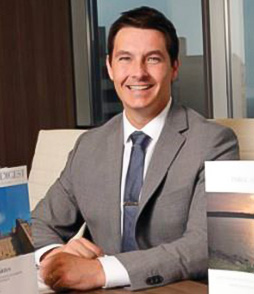
Matthew Dawe
Vice-President
Public Sector Digest
Matthew has served as the project manager/team lead for more than 250 successful local government implementations of Tangible Capital Assets (TCA 3150) across Canada. Since 2013, Matthew has lead the delivery of more than 120 municipal asset management plans, surpassing the requirements set by provincial and federal governments. He has also worked with communities to integrate their asset management strategies with their water rate studies for a more holistic approach to asset management. Matthew has significant experience working with senior levels of elected and appointed local government leaders and he is a published expert on asset management and Long-Term Capital Planning. He graduated from the University of Western Ontario with a degree in economics.
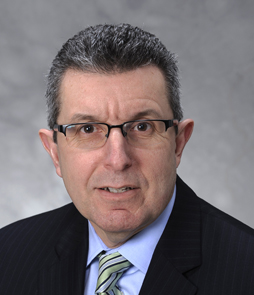
Michael D’Andrea
Executive Director
Engineering and Construction Services, City of Toronto
Michael D’Andrea, MESc, PEng, is executive director of engineering and construction services for the City of Toronto, where he leads a division of about 540 professional and technical staff and is responsible for the engineering design and construction of the City of Toronto’s water, wastewater, stormwater, transportation and solid waste infrastructure. In 2015, the division managed over 400 contracts, with a total capital budget valued at over $560 million.
“Older municipalities dealing with frequent basement and surface flooding from extreme storms must retrofit their systems to build in resiliency through costly and disruptive upgrades. This is further compounded by competing municipal priorities and limited financial resources. Drawing on these experiences, growing municipalities can and should seize the opportunity to build resiliency into their systems through proper planning and design, especially when considering the cost of building resiliency into their systems versus the losses that we can be expected if they don’t!”
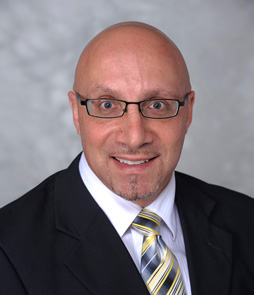
Lou Di Gironimo
General Manager
Toronto Water
Lou Di Gironimo is general manager of Toronto Water, a division of the City of Toronto. Under his leadership, the 1,700 staff in Toronto Water focus on providing quality water services – supplying drinking water, treating wastewater and managing stormwater, essential for protecting public health, property and the environment. The division serves 3.4 million residents and businesses in Toronto and portions of York and Peel, and has more than $28.2 billion in infrastructure.
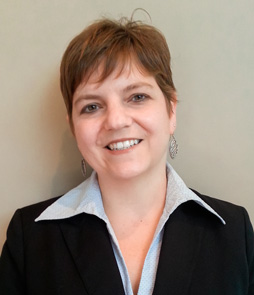
Monica Emelko
Associate Professor, Civil and Environmental Engineering
University of Waterloo
Monica Emelko is an associate professor of civil and environmental engineering at the University of Waterloo. Her research interests are focused on drinking water supply and treatment, particularly as related to sustainable technology design and optimization, risk analysis, integrated resource management, climate change impacts on water, groundwater under the influence of surface water and quantitative microbial risk assessment. Dr. Emelko is the co-principal investigator of the Southern Rockies Watershed Project, which focuses on evaluating the effects of wildfire and forest harvesting disturbance on hydrology, water quality, aquatic ecology and treatability.
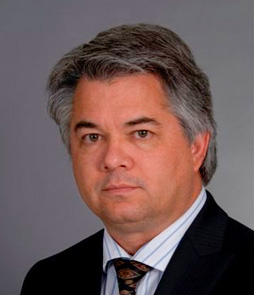
Blair Feltmate
Head, Intact Centre on Climate Adaptation
University of Waterloo
Blair Feltmate is head of the Intact Centre on Climate Adaptation (ICCA) in the Faculty of Environment at the University of Waterloo. The primary purpose of ICCA is to mobilize practical and cost-effective means to help de-risk Canadians from climate change and extreme weather events.
“Under the umbrella of climate change, extreme weather and flooding, every day that we don’t adapt is a day we don’t have if we are to avoid ongoing management by disaster scenarios.”
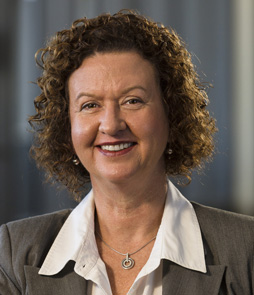
Sandra Gamble
General Manager, Business Strategy and Resilience (retired)
Sydney Water, Australia
Sandra Gamble was the general manager of business strategy and resilience at Sydney Water (Australia) from July 2012 to March 2016. While she was a member of the executive team, Sydney Water developed a new strategy to take its place as the Lifestream of Sydney for generations to come. This means adopting a new operating model that will put customers at the heart of everything it does. It also means taking a constructive role in the conversation about the future of Sydney.

Dustin Garrick
Assistant Professor and Philomathia Chair of Water Policy, McMaster University
Adjunct Professor, UN University Institute for Water, Environment and Health
Dustin Garrick specializes in environmental and water policy. He seeks to understand the drivers of and policy responses to the global water crisis by engaging theoretical perspectives on property rights, federalism and policy change and by using interdisciplinary and comparative methodology. His current research investigates water allocation policy and river basin governance in water stressed regions of Western North America and Southeast Australia. In this research, he has a particular interest in adaptation to climate change in transboundary rivers of North America, including a project investigating federalism and extreme climate events.

Linda Gowman
Chief Technology Officer
Trojan Technologies
Linda Gowman, PhD, PEng, is chief technology officer at Trojan Technologies in London, Ontario. She has degrees in engineering (University of Toronto) and biophysics (University of Western Ontario).
Linda has been with Trojan in various senior roles leading research and engineering, including vice-president of science and technology and vice-president of research. Her teams have been engaged in developing product innovations that have won numerous international awards in the water and wastewater treatment sectors.
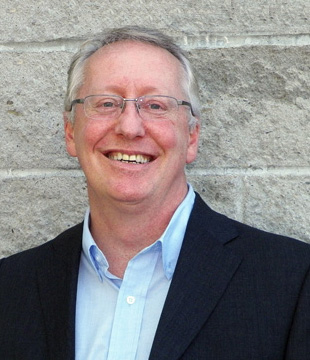
Robert Haller
Executive Director
Canadian Water and Wastewater Association
Robert Haller is the executive director of the Canadian Water and Wastewater Association (CWWA), which is the national voice of the water and wastewater sector in Ottawa. Robert took on this leadership role after almost 20 years as a senior municipal administrator; most of those years serving as a CAO for small- and medium-sized communities.
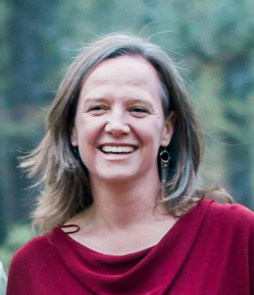
Meredith Hamstead
Independent Consultant, thinkBright Environmental Innovations
Coordinator, Columbia Basin Water Smart
Meredith Hamstead is an independent consultant specializing in sustainable community development. Since 2010, Meredith has led an innovative water conservation initiative (Columbia Basin Water Smart) in southeastern British Columbia that has supported 26 small and medium sized local governments to sustainably reduce community water demand by up to 40%.
“Innovation without data is a gamble. As climate change impacts become apparent at the local scale, the usual approaches to water conservation will no longer suffice. Water utilities must develop more robust data about how water in their systems is really being used in order to ensure that locally appropriate water conservation innovations are targeting the best opportunities to sustainably reduce water consumption and increase water system resilience.”

George Hawkins
Chief Executive Officer and General Manager
District of Columbia Water and Sewer Authority
George Hawkins serves as chief executive officer and general manager of the District of Columbia Water and Sewer Authority (DC Water). On his arrival in 2009, Mr. Hawkins launched an ambitious agenda to transform DC Water into a customer-oriented enterprise that is driving innovation and delivering improved value to its ratepayers. The core goal is to improve aging infrastructure while complying with stringent regulatory requirements.
“Extreme weather joins a long list of challenges that confront water utilities… like aging systems, increasing rate pressures, limited customer interaction and expensive regulatory mandates. Each challenge is daunting – but then resiliency in the face of hurricane and drought comes along to trump all the rest. Our industry is up to the challenge! We will succeed by adopting strategies that respond to multiple challenges, like DC’s innovative digester project, which recovers energy, creates a revenue stream and reduces our carbon footprint.”
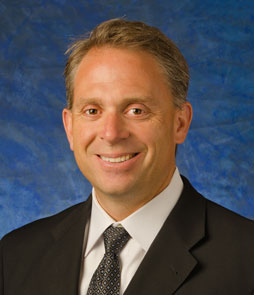
Trevor T. Hill
Chairman and CEO
FATHOM
Trevor Hill has over 25 years’ experience in building and leading water companies, including four successful startups, and has significant experience in both public and private markets having raised $75M through an IPO and over $500M for private ventures. Mr. Hill co-founded Global Water Resources, an investor-owned utility in the water scarce south-west that through his leadership, and direction built FATHOM, a suite of software products that provides state of the art back office services to municipal water utilities. With his continued vision, FATHOM is now an independent software company that just recently secured Round B funding with Silver Lake Kraftwerk to further enhance and expand the platform.
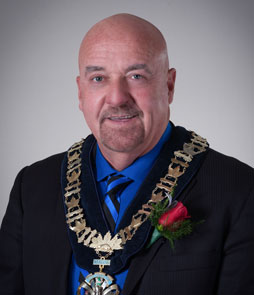
His Worship Keith Hobbs
Mayor, City of Thunder Bay
Keith Hobbs was elected mayor of Thunder Bay, Ontario in the 2010 municipal election as a first time political candidate. In 2014, he was re-elected for a second term.
Previously Mayor Hobbs served as a member of the Thunder Bay Police for 34 years, which offered a unique insight into the community’s challenges. Being on Council allows him a venue to address community poverty, ethnic and cultural equality, and economic diversification that offers good-paying jobs and housing for all citizens. Mayor Hobbs is compelled to raise the bar in community safety and crime reduction, with a commitment to having a safer, inclusive, cleaner, greener, prosperous and proud community with the assistance and partnership of every citizen and business in the City of Thunder Bay.
In 2013, Mayor Hobbs was appointed Chair of the Great Lakes St. Lawrence Cities Initiative (GLSLCI), a bi-national coalition of U.S. and Canadian mayors and other local officials that work with federal, state, and provincial governments to advance the protection and restoration of the Great Lakes and the St. Lawrence River.

Steve E. Hrudey
Professor Emeritus, Analytical and Environmental Toxicology
Faculty of Medicine and Dentistry, University of Alberta
Steve Hrudey has maintained a diverse, interdisciplinary career in the environmental health sciences and risk management. He has been recognized with a number of major awards, including a Queen Elizabeth II Diamond Jubilee Medal from the Royal Society of Canada for service to scholarship in science, the 2013 Research Excellence Summit Award of the Association of Professional Engineers and Geoscientists of Alberta and the top research award (2012 A.P. Black Award) of the American Water Works Association, the world’s largest professional association dedicated to safe drinking water.
“The dictionary defines resilience as, ‘the ability to become strong, healthy, or successful again after something bad happens.’ Because bad stuff inevitably happens, the exercise of providing high quality, 24 hours a day, 7 days a week, year-round safe drinking water can only be achieved by ensuring that a water utility is resilient. What separates a good water utility from a mediocre one? — Its ability to deal successfully with those inevitable challenges.”
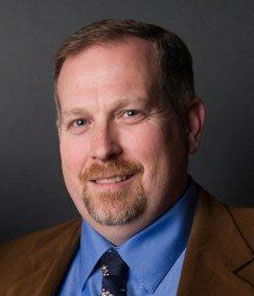
Dave Kains
Partner, Metroline Research Group Inc.
Dave Kains has been practicing the art and science of marketing research for 30 years. He is passionate about the world of marketing research, exploring concepts, new ideas and underlying motivation in the minds of consumers.
Metroline Research Group is based in Kitchener-Waterloo and Toronto, and serves a diverse global client base. Their work for the public sector is focused on resident perceptions, attitudes and behaviour related to strategic planning, water efficiency and waste management. Past projects have included research related to water efficiency master plans, conservation programs, watering restrictions, rainwater harvesting, greywater systems and communications about water efficiency.
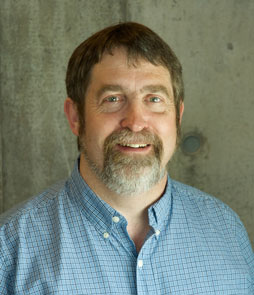
Bryan Karney
Professor of Civil Engineering
Associate Dean of Cross Disciplinary Programs in Engineering
University of Toronto
Bryan Karney graduated from the University of British Columbia, first in 1980 with an engineering UG degree, and then in 1984 with a PhD in Civil Engineering. He is currently a professor of civil engineering and associate dean of cross-disciplinary programs in engineering at the University of Toronto. He is also a principal of the engineering consulting firm HydraTek & Associates.
Bryan has over 30 years of experience in teaching, research and hydraulic consulting services and has worked on a wide range of fluid pipe systems, including water, wastewater, oil, gas and jet fuel.

Nancy Kodousek
Director of Water Services
Region of Waterloo
Nancy Kodousek has more than 30 years of senior management experience with both municipal and private sector water and wastewater systems. Prior to her current position as director of water services at the Region of Waterloo, Ms. Kodousek held similar management-level positions at AWS Engineers & Planners (formerly Azurix) and the Region of Ottawa-Carleton.
“Building resilience in our water systems is like building a quality management process that continually assesses risks and looks to improve reliability and redundancy of the supply and system for the future.“

Bu Lam
Manager of Municipal Programs
Canadian Water Network
Bu joined Canadian Water Network in May 2015. He is responsible for the ongoing development, management and implementation of Canadian Water Network’s municipal water programs, including the Canadian Municipal Water Consortium. He oversees the development and management of research programs and activities that collectively support and advance solutions for managing, regulating and supporting municipal drinking water, wastewater and stormwater systems.
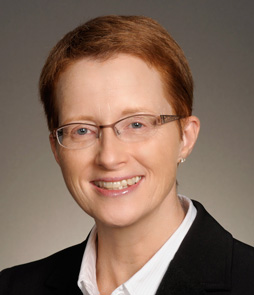
Erin Mahoney
Commissioner of Environmental Services
York Region
Erin Mahoney is commissioner of environmental services for York Region, overseeing water and wastewater services, waste management, forestry and corporate energy for almost 1.2 million residents and 28,000 businesses. She has over 25 years of public and private sector experience on projects involving water and wastewater treatment, environmental legislation, and public engagement.
“One of York Region’s goals has been to reduce peak water use to ensure a resilient and sustainable water supply. Our ‘Water for Tomorrow’ program saves 26.2 million litres of water each day. At the centre of this program is social collaboration, where we engage the public to build ideas around conservation, rather than build more infrastructure.”
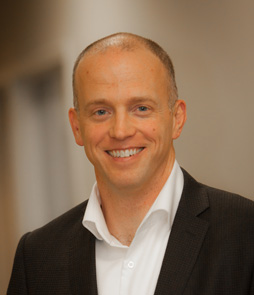
Reid McDougall
Regional Vice President for Canada
Pure Technologies
Reid McDougall has over 15 years of experience in the environmental sector. He is currently the regional vice president for Canada with Pure Technologies, a world leader in the development and application of technologies for the inspection, assessment and monitoring of pipelines and other critical infrastructure.
Before joining Pure, Reid worked with Sustainable Development Technology Canada and the SD Tech Fund,™ where he managed a portfolio of oil and gas and water treatment technologies, working with Canadian entrepreneurs to commercialize innovative, clean technologies.
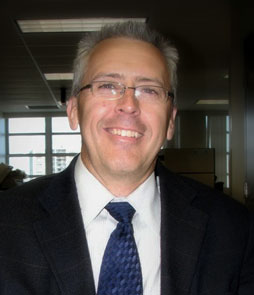
Dan McKinnon
Director
Hamilton Water
Dan McKinnon is the director of Hamilton Water. He has worked in a variety of progressively more responsible roles at the City of Hamilton since 1994, and has been a director since 2009. His portfolio includes water and wastewater treatment, distribution and collection, meter operations, customer service, environmental laboratory, environmental monitoring and enforcement, as well as water and wastewater planning and engineering.
As a graduate of Mohawk College in Hamilton, Dan has spent the last 28 years in the water and wastewater industry, including nine years with private contracting firms in the Hamilton area.
Dan lives in Ancaster with his wife and two sons. He is a proud, lifelong Hamiltonian who never misses an opportunity to advocate for… and brag about… Hamilton.

Tanja McQueen
Chief Executive Officer
BC Water & Waste Association
Tanja McQueen is a seasoned business leader with over 25 years of experience driving organizational change and transforming strategy into results in private sector, public sector, and not-for-profit roles, including CEO of a provincial association, senior executive with a water technology company listed on the Toronto Stock Exchange, and senior manager within regional and municipal government.
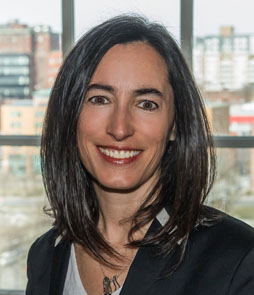
Chantal Morissette
Directrice du Service de l’eau
Ville de Montréal
Chantal Morissette has been the head of City of Montreal’s Water Services since 2011. She manages some $30 billion worth of assets related to drinking water production and distribution for 2 million people, as well as wastewater treatment and storm water management. In recent years, Ms. Morissette’s focus has been on the continuous improvement of operations and maintenance activities, as well as on increasing investment in water infrastructure in order to ensure a sustainable service for future generations.
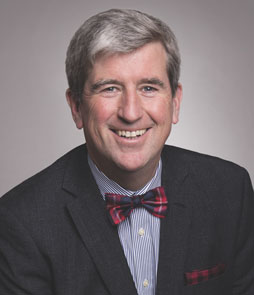
The Honourable Glen Murray
Ontario Minister of the Environment and Climate Change
Glen Murray has had a lifetime of activism in urban planning, sustainable development and community health, and is a founding member of the Canadian AIDS Society. Minister Murray served as mayor of Winnipeg from 1998 to 2004. He has also served as a visiting fellow at the Faculty of Architecture and Landscape Design at the University of Toronto, was appointed chair of the National Round Table on the Environment and the Economy in 2005, and was named president and CEO of the Canadian Urban Institute in 2007. Murray was first elected to the Ontario legislature in 2010, and currently serves as Ontario’s Minister of the Environment and Climate Change.
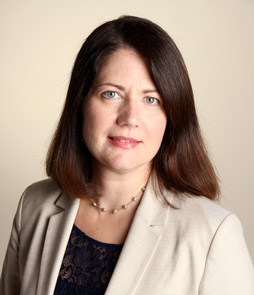
Helen C. Noehammer
Director of Transportation and Infrastructure Planning
City of Mississauga
Helen Noehammer, MASc, PEng, is the director of transportation and infrastructure planning with the City of Mississauga’s Transportation and Works Department. Helen is responsible for overseeing a broad range of activities, including the review of development applications from a transportation and public works perspective; the preparation of asset management programs for multi-year capital budgets for roads, bridges and stormwater management infrastructure; conducting Class Environmental Assessment studies for expansions to the City’s road and stormwater infrastructure networks; management of contaminated properties; the Active Transportation Office; and long-range planning for the City’s transportation and transit networks. A recent accomplishment was obtaining approval from Mississauga Council for the implementation of a stormwater charge, making Mississauga the largest Canadian municipality to currently administer such a charge.

Steven Renzetti
Professor, Economics, Brock University
Scientific Director, Water Economics, Policy and Governance Research Network
Steven Renzetti is a professor of economics at Brock University and scientific director for the Social Sciences and Humanities Research Council-funded Water Economics, Policy and Governance Research Network. His research has been published in leading journals and has addressed issues related to water demands, pricing and the structure of water utilities’ costs of supply.
“One part of creating more resilient communities involves providing households and companies with the information they need in order to be able to adapt, mitigate and respond to risks. Prices are important but sometimes underappreciated pieces of information. These prices need to fully reflect the values of natural capital, external costs of production and environmental risks in order to fully inform decision-makers.”

Councillor Jaye Robinson
Chair of the Public Works & Infrastructure Committee
City of Toronto
Re-elected in 2014 with one of the city’s highest pluralities and appointed Chair of the Public Works & Infrastructure Committee, Jaye oversees a $2 billion portfolio that includes Transportation Services, Toronto Water, Solid Waste Management and Engineering & Construction Services. In her role as Chair, she launched the city’s first ever Road Safety Strategic Plan – a comprehensive strategy to develop and deliver international road safety practices in Toronto.

Harry Seah
Chief Technology Officer
Public Utilities Board, Singapore
Harry Seah is currently chief technology officer of the technology department for Public Utilities Board (PUB), Singapore’s national water agency. The technology department coordinates the research and development initiatives in PUB, and supports PUB’s mission through technology, innovation, industry partnership, expertise development and the introduction of best practices.

Brendan Shane
Regional Director for North America
C40
Brendan Shane serves as the regional director for North America at C40. In this role, he supports C40 cities in the United States and Canada in their climate action and sustainability planning, measurement and implementation, and facilitates inter-city, regional and global collaboration.
Prior to joining C40, Brendan served as chief of policy and sustainability for the District Department of the Environment in Washington, DC, where he worked across district government and with private sector stakeholders to develop and implement the city’s first comprehensive sustainability plan. He also managed programs that included green building and climate change, and supported a range of cutting-edge initiatives across energy, waste and sustainable development.
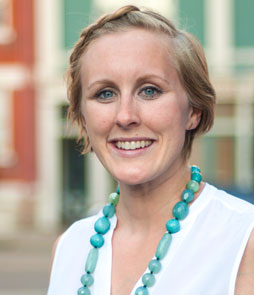
Erica Spitzig
Deputy General Counsel
National Association of Clean Water Agencies
Erica Spitzig serves as deputy general counsel for the National Association of Clean Water Agencies (NACWA), where she works to advance NACWA’s legal advocacy on behalf of publicly-owned stormwater and wastewater utilities nationwide.
Prior to joining NACWA, Erica worked as an attorney in private practice for firms with offices in Ohio and Kentucky, where she gained significant experience representing clients on municipal clean water legal and regulatory issues, including NPDES permitting and consent decree compliance. Erica also served as an assistant attorney general for the State of Ohio, where she litigated Clean Water Act and Safe Drinking Water Act enforcement matters.
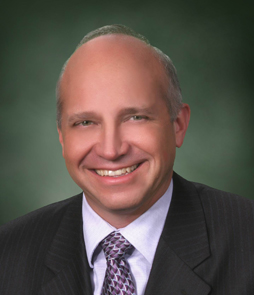
Peter Steblin
Chairman of the Board, Canadian Water Network
City Manager, City of Coquitlam
Peter Steblin joined the City of Coquitlam in 2008 as the city manager. He oversees the broad requirements of the organization, and is responsible for the execution of Council’s decisions and the work of City departments that includes more than 1200 employees and a total capital and operating budget of over $200 million.
Previously, Mr. Steblin was the general manager of environmental services and the city engineer for the City of London from 2002 until 2008. He was also the chief administrative officer for the joint boards of management for the Elgin Area Primary Water Supply System and the Lake Huron Water Supply System.
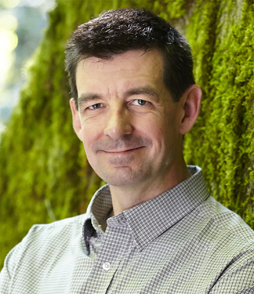
Kirk Stinchcombe
Sustainability Specialist
Econics
Kirk Stinchcombe is a sustainability specialist with Econics. His work is driven by a passion for water sustainability and conservation. Prior to founding Econics, Kirk was the manager of operational policy with the BC Ministry of Environment’s water stewardship division.
Kirk spent much of the last decade in South East Queensland, where he was responsible for developing and delivering critical large-scale demand management projects as part of the response to the “Millennium Drought”.
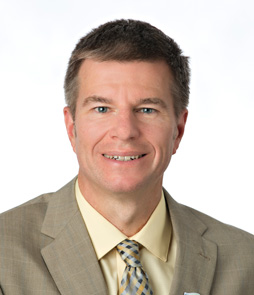
John St. Marseille
General Manager, Infrastructure and Municipal Works
City of Cornwall
As a General Manager and a member of the City of Cornwall’s senior management team, John St. Marseille has a mandate for municipal works, infrastructure and environmental services as well as the transit division. He has branded and championed the City of Cornwall’s Blueprint, which is an urban water strategy. His career includes nearly 24 years in consulting engineering before joining the City of Cornwall.
“In the fall of 2013, following a catastrophic rain event, the City of Cornwall launched Blueprint, its urban water strategy. The goal was to assure citizens and key stakeholders that the city had an appropriate plan and budget to respond. We provided regular updates though social media, the City’s website, at town hall meetings and in one-on-one discussions. Extreme weather presented an opportunity to raise awareness about our infrastructure challenges.”
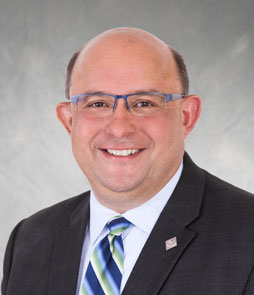
His Worship Berry Vrbanovic
Mayor, City of Kitchener
Berry Vrbanovic was elected as Mayor of the City of Kitchener in 2014, after serving as a City Councillor from 1994-2014. During his time as a councillor, Berry’s commitment to his constituents resulted in the fire station at Ottawa Street and River Road, the Grand River-Stanley Park branch of the Kitchener Public Library and the Stanley Park Community Centre.
In addition to serving on all regular standing committees of Kitchener city council and Region of Waterloo council, Berry is also an appointee and active participant on many boards and committees. He is also Treasurer of United Cities & Local Governments and is President Emeritus (2011-12) of the Federation of Canadian Municipalities.
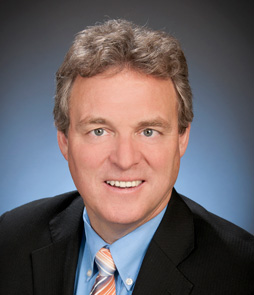
Carl D. Yates
General Manager, Halifax Water
Carl Yates has extensive experience in the water utility profession, having served as project engineer, chief engineer and general manager of the Halifax Water Commission from 1988 to 1996. In 1996, he was appointed general manager of the Halifax Regional Water Commission, which assumed a regional mandate after the municipal amalgamation of the greater Halifax area in 1996. In 2007, Mr. Yates oversaw the formation of the first regulated water, wastewater and stormwater utility in Canada with the transfer of wastewater and stormwater assets from the Halifax Regional Municipality. Halifax Water is a body corporate municipal utility, generating approximately 130 million dollars in annual revenue with assets of over $2 Billion.
“Resiliency is crucial for successful water management. It speaks to implementing best practices for the long term and promoting intergenerational equity, and ensures that both revenues and expenses are in line with the cost of service provided. When wastewater and stormwater assets were transferred from Halifax Regional Municipality to Halifax Water in 2007, the utility formalized its cost of service for wastewater and stormwater service. Inherent in the cost of service was the establishment of depreciation as an operating expense to align with “pay as you go” principles for infrastructure renewal.”
